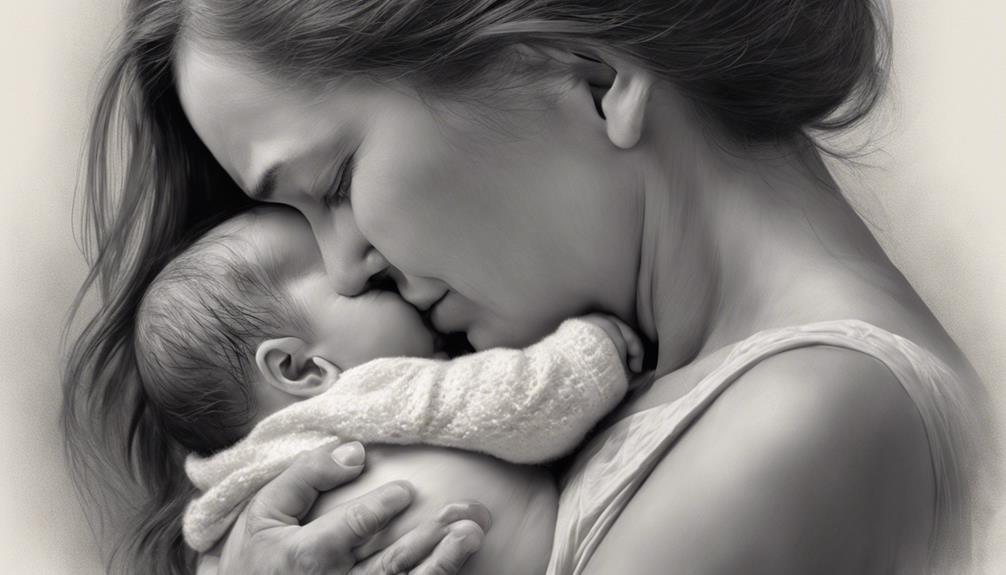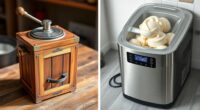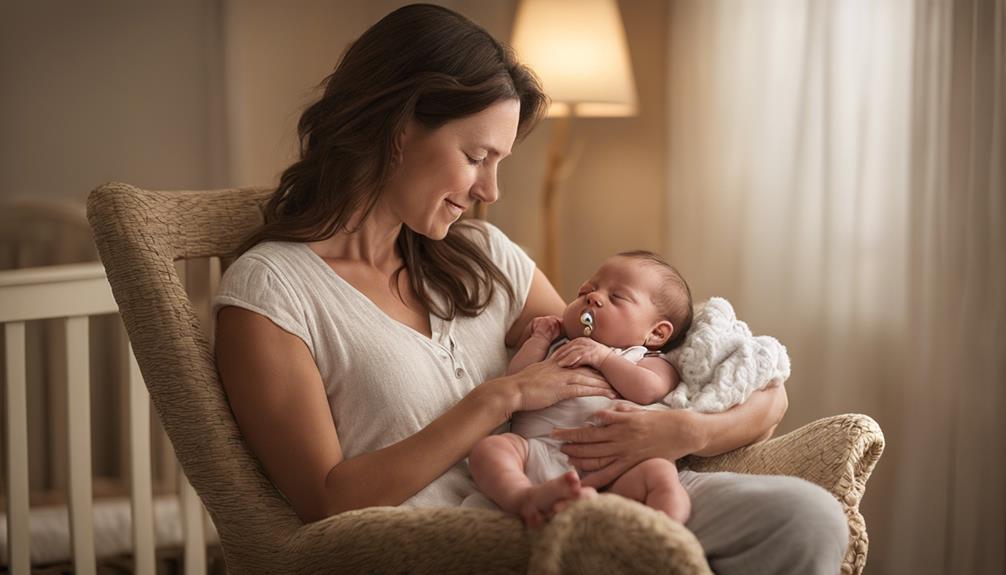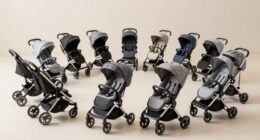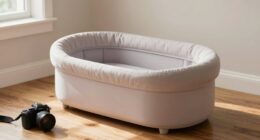Imagine the soft rise and fall of your baby's chest, interrupted by sudden, rhythmic hiccups.
You wonder what you can do to help soothe your little one and bring peace back to their tiny frame.
In this discussion, you will discover gentle methods that can ease hiccups in newborns, providing you with practical techniques that prioritize your baby's comfort and well-being.
Key Takeaways
- Burping techniques, pacifiers, and positional changes can help relieve newborn hiccups gently.
- Calm feeding environments and avoiding rushed feedings can prevent hiccups in newborns.
- Holding baby upright, burping frequently, and using pacifiers aid in hiccup prevention.
- Techniques like burping, offering a pacifier, and changing positions can stop newborn hiccups effectively.

Lovely Care 12 Pack Muslin Burp Cloths 100% Cotton Muslin Cloths Large 20''x10'' Extra Soft and Absorbent Baby Burping Cloth – White
💎ESSENTIAL ITEM- Our multi-functional muslin burp cloth, measuring 20×10 inches, is perfect for all your needs. Made of…
As an affiliate, we earn on qualifying purchases.
As an affiliate, we earn on qualifying purchases.
Understanding Newborn Hiccups
Understanding why newborns get hiccups can help you address this common occurrence with confidence and care. Baby hiccups are typically caused by irritation to the diaphragm, resulting in quick, jerky movements. Common triggers include eating too quickly, having a bloated stomach, or experiencing the Tonic Neck Reflex.
These hiccups usually fade away on their own within 5 to 10 minutes. To help stop newborn hiccups, you can try burping your baby, offering a pacifier, or changing their position to a more upright one during feeding. Ensuring a calm feeding environment and avoiding rushed feedings can help prevent hiccups when possible.
While most cases of newborn hiccups are harmless, if they persist or are accompanied by other worrying symptoms, seeking medical advice is advisable. Remember, staying informed about the causes and ways to manage baby hiccups can provide you with the tools needed to care for your little one effectively.

Philips Avent Soothie Baby Pacifiers – 100% Silicone Pacifiers for Babies 0-3 Months, One-Piece Design, BPA-Free, Extra Durable, Green, 4 Pack, Model SCF190/41
Newborn pacifier 0-3 months supporting baby’s natural suckling need: designed to fulfill newborns' natural suckling reflex to self-soothe…
As an affiliate, we earn on qualifying purchases.
As an affiliate, we earn on qualifying purchases.
Burping Techniques for Relief
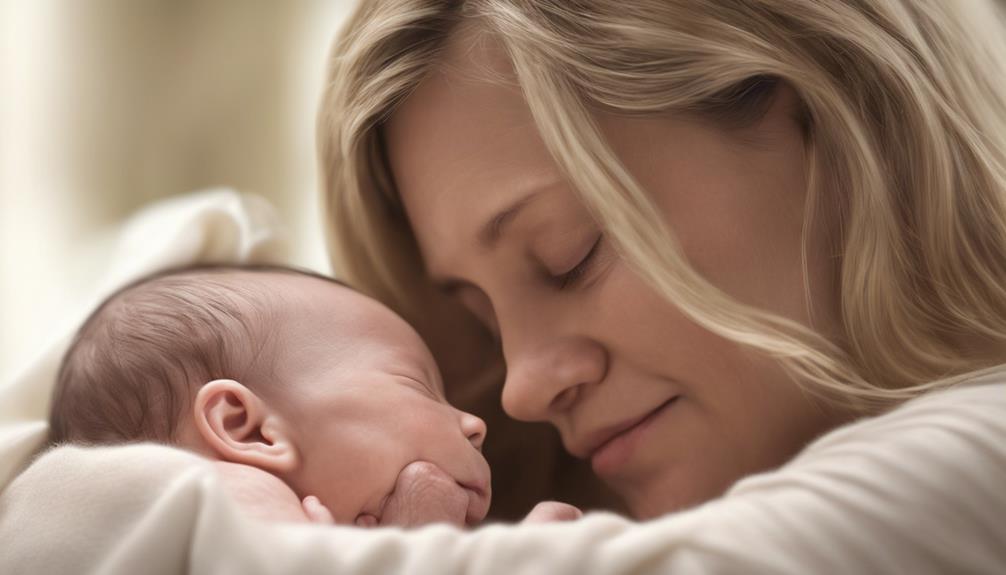
To ease your newborn's discomfort and prevent hiccups, mastering effective burping techniques is essential. Here are some gentle techniques to help relieve your baby from excess gas and stomach discomfort:
- Positioning: Hold your baby upright against your chest, supporting their chin and chest with one hand while gently patting or rubbing their back with the other.
- Guarantee Feeding: If bottle-feeding, make sure a slow flow to prevent your baby from swallowing air.
- Frequency: Burp your baby every 2-3 ounces during bottle feeds or when switching between breasts if breastfeeding.
- Gentle Pressure: Applying gentle pressure to your baby's tummy while burping can help release trapped gas.
- Post-Feeding Burp: Don't forget to burp your baby after a feeding session to prevent hiccups caused by air bubbles.

Babymoov Lovenest Organic Baby Infant Cushion, Pediatrician Designed Versatile, Comfortable, Machine-Washable Head and Neck Support (Made in Europe), Baby Registry Must Have
The solution to help prevent Flat-Head Syndrome
As an affiliate, we earn on qualifying purchases.
As an affiliate, we earn on qualifying purchases.
Pacifier Soothing Method

To help further alleviate your newborn's discomfort and prevent hiccups, consider soothing them with a pacifier. The act of sucking on a pacifier can help relax the diaphragm, potentially stopping those pesky hiccups.
The gentle sucking motion may also distract your little one, reducing spasms in the diaphragm that lead to hiccups. Many parents find that pacifiers offer comfort and soothing to their newborns experiencing hiccups. This method is non-invasive and gentle, making it a popular choice for hiccup relief.
While the effectiveness can vary from baby to baby, using a pacifier is a simple and safe way to calm your newborn's hiccups. So, next time your little one is bothered by hiccups, try offering them a pacifier to ease their discomfort and bring them some much-needed comfort.

Little Remedies Gripe Water for Babies, With Chamomile, for Baby Gas Relief, No Alcohol or Artificial Dyes, 4 Fl Oz
Gently relieves stomach discomfort from gas, colic, fussiness and hiccups*
As an affiliate, we earn on qualifying purchases.
As an affiliate, we earn on qualifying purchases.
Positional Changes to Help
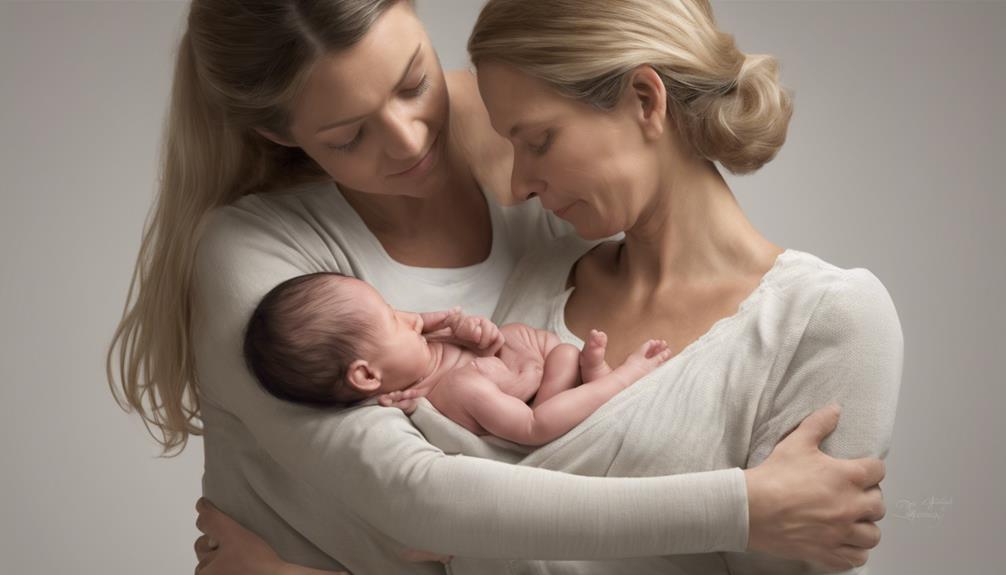
When comforting your newborn experiencing hiccups, gently adjusting their position can assist in alleviating the discomfort.
Here are some simple positional changes that can help your baby find relief:
- Hold your baby upright: This allows gravity to help move trapped air bubbles that could be causing the hiccups.
- Rock your baby gently: A soothing rocking motion can relax the diaphragm, potentially stopping the hiccups.
- Change positions: Moving from lying down to sitting up can alter internal pressure, aiding in resolving hiccups.
- Keep your baby calm: Creating a quiet and stress-free environment can naturally reduce hiccups.
- Avoid sudden movements: Prevent further irritation to the diaphragm by refraining from jostling the baby.
Gentle Tips for Prevention

For gentle prevention of hiccups in your newborn, consider incorporating these soothing and practical tips. Burping your baby frequently during feedings helps prevent hiccups by releasing trapped air in the stomach. Offering smaller, more frequent feedings can prevent hiccups caused by overfeeding or gulping air. Keeping your baby upright during and after feedings aids in digestion and reduces the likelihood of hiccups. Using a pacifier to calm your baby's diaphragm may gently stop hiccups. Creating a calm and soothing feeding environment can help prevent stress-related hiccups. Remember, when burping your newborn, ensure the baby is calm to reduce the amount of air swallowed. By keeping your baby upright and content, it is possible to prevent hiccups in babies effectively.
| Prevention Tips | Description |
|---|---|
| Burp your baby | Release trapped air to prevent hiccups during feedings. |
| Offer smaller, more frequent feedings | Prevent overfeeding and hiccups caused by gulping air. |
| Keep baby upright | Aid digestion and reduce the likelihood of hiccups. |
| Use a pacifier | Calm the diaphragm gently to stop hiccups. |
| Create a calm environment | Prevent stress-related hiccups during feedings. |
Frequently Asked Questions
How Can I Soothe My Newborn's Hiccups?
To soothe your newborn's hiccups, try burping, offering a pacifier, changing positions, or gently rubbing their back. Avoid adult remedies. Remember, patience and gentle techniques work best for comforting your little one.
Is It OK to Lay Baby Down With Hiccups?
It's perfectly fine to lay your baby down with hiccups. Hiccups are common and harmless. If they persist, try gentle methods like burping or a pacifier. Keep an eye on your little one to guarantee comfort.
What Is the Best Position for Baby Hiccups?
When your little one gets the hiccups, try holding them upright on your shoulder. This position can help release trapped air and ease their discomfort. It's a simple, comforting way to soothe those pesky hiccups.
Do Hiccups Mean Baby Is Full?
Hiccups in newborns do not necessarily indicate fullness. They are caused by diaphragm spasms and can happen regardless of feeding. Your baby's hiccups are not a sign of being full; they're just a normal occurrence.
Conclusion
To conclude, by burping, offering a pacifier, changing positions, and taking gentle measures, you can help alleviate hiccups in your newborn. Remember to prioritize safe and gentle methods to make sure your baby's comfort.
With patience and care, you can effectively ease your little one's hiccups and provide them with relief. Stay calm, stay gentle, and your baby will be hiccup-free in no time.
